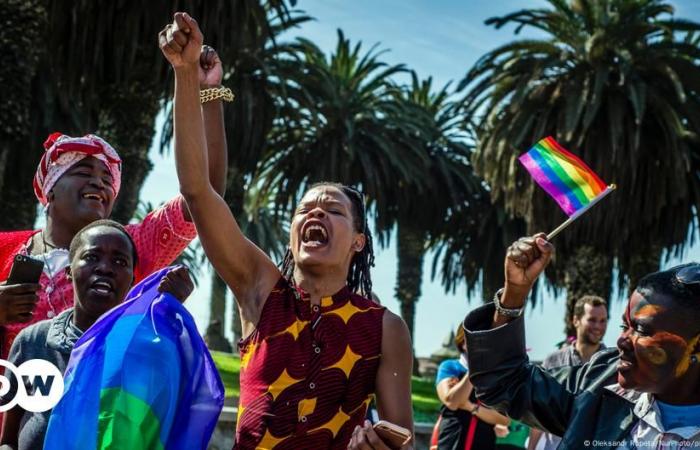Human rights are so called in the Universal Declaration adopted by the member states of the United Nations in 1948.
Man with a capital H, to show that these principles are posed as universal… they are supposed to be recognized by all of humanity for all of humanity and govern human interactions.
Except that these human rights constitute a foundation which is sometimes shaken – by individuals or authoritarian regimes which call them into question. And yet, they persist.
Listen to the interview with Xavier Dupré de Boulois, professor of law at the University of Paris 1 Panthéon-Sorbonne
Xavier Dupré from Boulois: There is a questioning, not of human rights themselves, because there are no longer many States today which deny human rights.
But let’s say that they defend human rights in their own way.
It is however true that there is a questioning of human rights in the intellectual field, with criticisms from quite diverse origins.
There is a criticism that comes from religions hostile to human rights – not in general, but to some of them, and in particular all those which mark the emancipation of the individual in the family.
You have a second discourse which is based more on the refutation of the universalism of human rights, which starts from the observation that these rights have indeed been enshrined in the West. That it is a Western conception which did not prevent colonialism.
This is a concept that is very widely theorized in China. And it is also a discourse that we find in Africa, indeed, where [certains critiquent] this Western conception which was a conception of domination. This is the second criticism.
The third remains socialist criticism which above all denounces the valorization of societal rights at the expense of social rights.
There is also a fourth criticism in the intellectual field which comes from certain currents of political ecology which have stigmatized a conception of Man in society which would have justified the primacy of Man over nature.
However, there are many nuances in these speeches and, to my knowledge, today there is no longer any State which denies the existence of human rights. Including states like Saudi Arabia or China.
Thus, states which are nevertheless fundamentally authoritarian states take advantage of a conception of human rights, but which breaks with that which is supposed to come from the West.
DW: Yet, in practice, violations of these principles are commonplace, including in Western democracies elsewhere.
Yes of course. It is true that human rights remain a struggle.
And indeed, despite the great proclamations, Western countries also still have their share of gray areas in this matter, especially towards the margins: concerning the situation of migrants, but also the situation of detainees.
So no, we have not reached the end of a process or what we want to aim for.
Of course, everyone has their share of difficulties in this area.
Rights and Freedoms is a program prepared, produced and presented by Sandrine Blanchard
With a thank you this week to Xavier Dupré de Boulois, professor of law at the University of Paris 1 Panthéon-Sorbonne






